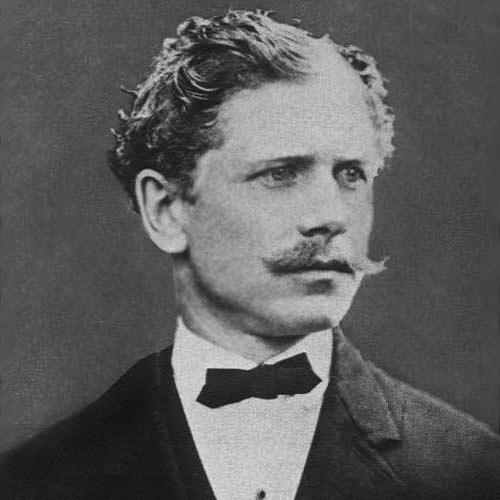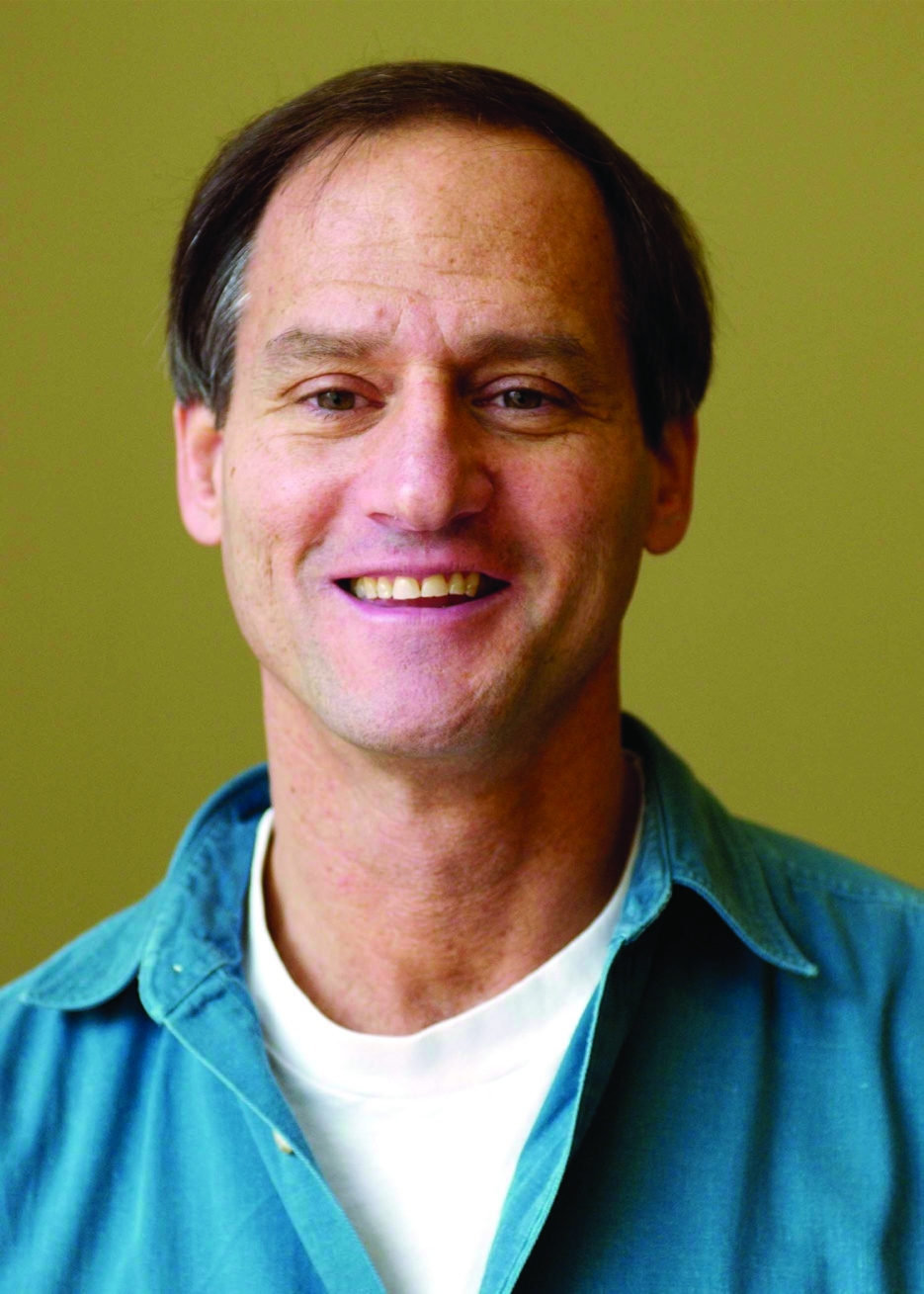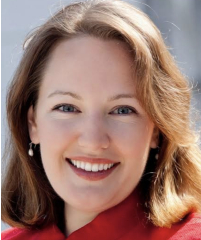June 24
Ambrose Bierce

On this date in 1842, author Ambrose Bierce was born in a log cabin in Meigs County, Ohio, to Marcus Aurelius and Laura Sherwood Bierce. He left home at 15 to work as a “printer’s devil” for a newspaper. At 17 he enrolled at the Kentucky Military Institute and enlisted in the Union Army at age 19 in 1861. His Civil War experiences fed his Edgar Allan Poe-like “western Gothic” supernatural stories, numbering more than 90, which he wrote in middle age. After the war he honed his writing skills on atheistic tracts and drew a folio of political cartoons.
Bierce was hired as a journalist at several San Francisco newspapers, writing 167 weekly, satiric “Town Crier” columns later published in book form, The Fiend’s Delight (1872). Married in 1871, he and his new wife went on an extended honeymoon to England as a gift from his father-in-law. Bierce struck up friendships with the “Fleet Street Gang” and wrote for Figaro and Fun. Those columns were reprinted in book form as Cobwebs from an Empty Skull (1874). Bierce was hired by William Randolph Hearst in 1887 and worked for him for 21 years, inaugurating a column of witty epigrams.
Vintage Bierce: “Camels and Christians receive their burdens kneeling.” “Treat things divine with marked respect — don’t have anything to do with them.” His ghost story, An Occurrence at Owl Creek Bridge, is still anthologized. Bierce was at the height of his fame at the turn of the century when his lobbying defeated a bill by “railroad rogues” seeking massive forgiveness of debt to the government. In 1906 The Cynic’s Word debuted, later renamed The Devil’s Dictionary. It is his most-enduring freethought work.
Bierce’s personal life was rocky, with one son dying either of suicide or during a duel, another of pneumonia in his 20s, and Bierce’s marriage ending in divorce, earning him the nickname “Bitter Bierce.” In 1913, at age 70, he told friends during a visit to Texas that he was going south and was never heard from again. Bierce reputedly fought beside Pancho Villa and died in battle, although some believe Villa killed him in a quarrel. Others maintain Bierce never went to Mexico at all. He is believed to have died in 1914. A novel speculating about Bierce’s last days, The Old Gringo, was written by Carlos Fuentes in 1985 and was made into a movie starring Gregory Peck and Jane Fonda in 1989. (D. 1914)
* Christian (n.) One who believes that the New Testament is a divinely inspired book admirably suited to the spiritual needs of his neighbor. One who follows the teachings of Christ insofar as they are not inconsistent with a life of sin.
* Eucharist (n.) A sacred feast of the religious sect of Theophagi. A dispute once unhappily arose among the members of this sect as to what it was that they ate. In this controversy some five hundred thousand have already been slain, and the question is still unsettled.
* Evangelist (n.) A bearer of good tidings, particularly (in a religious sense) such as assure us of our own salvation and the damnation of our neighbors.
* Faith (n.) Belief without evidence in what is told by one who speaks without knowledge, of things without parallel.
* Infidel (n.) In New York, one who does not believe in the Christian religion; in Constantinople, one who does.
* Pray (v.) To ask that the laws of the universe be annulled in behalf of a single petitioner, confessedly unworthy.
* Religion (n.) A daughter of Hope and Fear, explaining to Ignorance the nature of the Unknowable.
* Reverence (n.) The spiritual attitude of a man to a god and a dog to a man.
* Saint (n.) A dead sinner revised and edited.— Bierce, "The Devil's Dictionary" (1906)
Michael Newdow

On this date in 1953, Michael Arthur Newdow, an attorney and emergency room physician, was born to nominally Jewish parents. He grew up in the Bronx, N.Y., and Teaneck, N.J., and earned a B.S. in biology from Brown University. In 2004 he told Brown’s alumni magazine that “I was born an atheist.” He graduated from UCLA’s medical school in 1978 and earned a law degree from the University of Michigan in 1988. In 1977, he was ordained as a minister in the Universal Life Church, based in Modesto, Calif., a “church” which has but one basic tenet: “Do only that which is right.”
In 1997 he formed an organization called FACTS (First Atheist Church of True Science), which advocates for a strong wall between state and church. Newdow has filed several lawsuits challenging the mingling of religion and government. One, Elk Grove Unified School District v. Newdow, was argued before the U.S. Supreme Court in 2004. The issues at hand: Whether a public school district policy that required teachers to lead students in reciting the Pledge of Allegiance, which included the words “under God,” was a violation of the Establishment Clause of the First Amendment, and whether Newdow had legal standing on behalf of his daughter to challenge the policy.
The 9th Circuit U.S. Court of Appeals ruled in his favor in 2002 that “under God” in school pledges was unconstitutional. Circuit Judge Alfred T. Goodwin, a 79-year-old Nixon appointee, famously wrote: “A profession that we are a nation ‘under God’ is identical to a profession that we are a nation ‘under Jesus,’ a nation ‘under Vishnu,’ a nation ‘under Zeus,’ or a nation ‘under no god.’ ”
The appeals court ruling was appealed to the Supreme Court, which ruled 5-3 that Newdow didn’t have standing in the case because he didn’t have sufficient custody over his daughter, whose mother had primary custody. “No one who managed to get a seat in the courtroom is likely ever to forget his spellbinding performance,” New York Times court reporter Linda Greenhouse said of Newdow’s oral argument.
What he saw as unconstitutional endorsement of religion led Newdow to file other suits, including one to remove “In God We Trust” from U.S. coins and currency and others to block religious invocations at presidential inaugurations, use of “so help me God” when administering the oath of office and use of official chaplains in Congress. FFRF named Newdow its Freethinker of the Year in 2002 and a Freethought Hero in 2004.
“Mr. Chief Justice, and may it please the Court:
Every school morning in the Elk Grove Unified School District’s public schools, government agents, teachers, funded with tax dollars, have their students stand up, including my daughter, face the flag of the United States of America, place their hands over their hearts, and affirm that ours is a nation under some particular religious entity, the appreciation of which is not accepted by numerous people, such as myself. We cannot in good conscience accept the idea that there exists a deity.
I am an atheist. I don’t believe in God. And every school morning my child is asked to stand up, face that flag, put her hand over her heart, and say that her father is wrong.”
— Newdow's oral argument to the U.S. Supreme Court, March 24, 2004 (The Oyez Project)
Kelda Roys

On this date in 1979, atheist legislator and activist Kelda Helen Roys was born in Marshfield, Wis. While she was growing up in Medford and Madison, her mother Krista was a part-time social worker and her father worked for the state Department of Regulation and Licensing. Her stepfather was an environmental lawyer. “Roys is my mom’s last name,” she told The Capital Times in 2011. “That’s how hippie my parents were.”
Roys earned a B.A. in 2000 from New York University, where she focused on politics, drama and cultural studies. She received a J.D. in 2004 from the University of Wisconsin Law School. Her primary legal interests were civil rights and international law, and she was a participant in the Innocence Project.
She served for four years as executive director of NARAL Pro-Choice Wisconsin, working to expand emergency contraception access through state and local policy. She was elected in 2008 to the Wisconsin Assembly, the youngest state legislator at the time at age 29. She ran successfully for a second term and was elected Democratic caucus chair and served as vice chair of the Committee on Health and Healthcare Reform.
Roys continued to practice law while serving as a legislator and in 2013 founded OpenHomes, a real estate brokerage. She spent several years as a commissioner for Madison’s Community Development Authority and as policy chair for the Clean Lakes Alliance. She has served on other boards, including ACLU of Wisconsin, Madison Repertory Theater and Common Cause.
In 2020 she was elected to a four-year state Senate term after winning a crowded primary and running unopposed in November.
Roys married Dan Reed in Iowa in 2011. He brought two daughters, Erin and Emily, to the marriage when they were 8 and 11. Roys and Reed, a business strategist before moving to American Family Insurance, have three children together: daughters Arcadia and Avalon and a son William, born in 2021.
“I identify as an atheist,” Roys told FFRF in 2022. “I was raised Unitarian Universalist, and we also celebrated a lot of Jewish traditions on my father’s side. I still sometimes attend the Unitarian congregation.” … Tying morality to religion is “patently false … two separate things,” she said. She calls her worldview a “humanist philosophy.” (“Freethought Matters,” Feb. 14, 2022)
She’s been a guest several times on FFRF’s TV and radio shows and was a panelist at the 2023 national convention in Madison.
Her interview only 10 days before the U.S. Supreme Court overturned Roe v. Wade in 2022 seems remarkably prescient in assessing the increasing influence of right-wing extremists working to install a theocracy: “Once they overturn Roe, they’re going to outlaw abortion, they’re going to highly restrict birth control and criminalize some birth control methods, and they’re going to roll back equality and protections for LGBTQ+ Americans. They’re working hard to insert a very narrow fundamentalist Christian view into the law that should terrify everyone, including Christians.” (The Humanist, June 14, 2022)
“Because I'm in a privileged position in so many ways, it's even more important that I speak out and be open about being an atheist and a secular humanist. Anyone who has that privilege can use it to help people understand that being nonreligious is a pretty common thing.”
— Interview, The Humanist (June 14, 2022)
